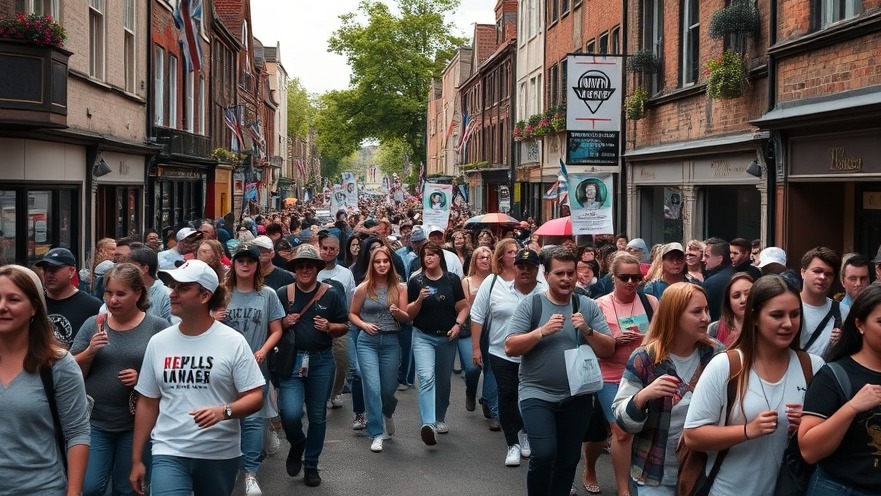
Unearthing the Lost Voices of Female Revolutionaries
In her upcoming book, "We the Women," Norah O'Donnell embarks on a journey through history, spotlighting the oft-overlooked female revolutionaries who played pivotal roles in shaping the United States. The sheer audacity of Mary Katharine Goddard, who not only printed the Declaration of Independence but did so at personal risk, underscores the bravery that these women exhibited during times of oppression. As O'Donnell suggests, many of these trailblazers would have garnered immense social media attention had they lived today. Their stories resonate particularly as the nation prepares to celebrate its 250th birthday in 2026.
Connecting the Dots: Why History Matters Today
The absence of women's contributions in our historical narrative is not just an oversight; it's a significant gap that shapes our understanding of past events. O'Donnell's work is not just about documenting history but transforming it. The book aims to inspire contemporary women and young girls by connecting them with their historical counterparts. O'Donnell remembers her own schooling, reflecting, "In school, I didn't learn a lot about women in history," emphasizing the need for a renaissance in how we approach education surrounding women's roles.
The Revolutionary Spirit: Female Icons of American History
Among the figures celebrated in O'Donnell's book are Katharine Wright, often overshadowed by her brother Orville and Wilbur Wright, and Emily Warren Roebling, who was instrumental in the construction of the Brooklyn Bridge. Had circumstances been different, these women would have received the same accolades typically reserved for their male counterparts. O'Donnell notes that Wright, had she been male, would have been a household name. This raises critical questions about the visibility of women's contributions and how this underrepresentation impacts our current cultural landscape.
Inspirational Figures: Lighting the Path for Future Generations
The narratives of these courageous women from 1776 to the present day are intended to serve as guiding lights. O'Donnell expresses hope that her book will inspire little girls everywhere, showing them they, too, can be revolutionaries. The recognition of these hidden figures encourages not just admiration but also reflection on the barriers women continue to face today.
Where History Meets Modern Entertainment
As O'Donnell gears up for her book's release, the relevance of these historical figures becomes richer in today's context. For example, women across various fields—including entertainment, technology, and science—are still battling for recognition and rights. Cities like San Antonio celebrate cultural events that highlight diverse voices, making it a prime location to explore women-driven narratives today. From live music shows to theater performances, local venues provide platforms that echo the revolutionary spirit found in O'Donnell's work.
Engaging with History through Local Events
If you're in San Antonio and eager to explore the contributions of women throughout history, consider attending local exhibitions and talks that resonate with O'Donnell's themes. Activities such as art walks, film festivals, and live shows will not only entertain but also educate and challenge perceptions about women's roles in shaping society. Check out what's happening this weekend for a chance to engage actively with this historical discourse.
Call to Action: Join the Celebration of Women’s History
As we anticipate the launch of "We the Women" on February 24, 2026, consider how you can support local events that celebrate women's contributions in your community. Engaging with literature and historical narratives enables us all to build a more inclusive future. Seek out opportunities to honor these historical figures, perhaps by joining discussions, attending local events, or simply reading more about their incredible stories.
 Add Element
Add Element  Add Row
Add Row 



Write A Comment